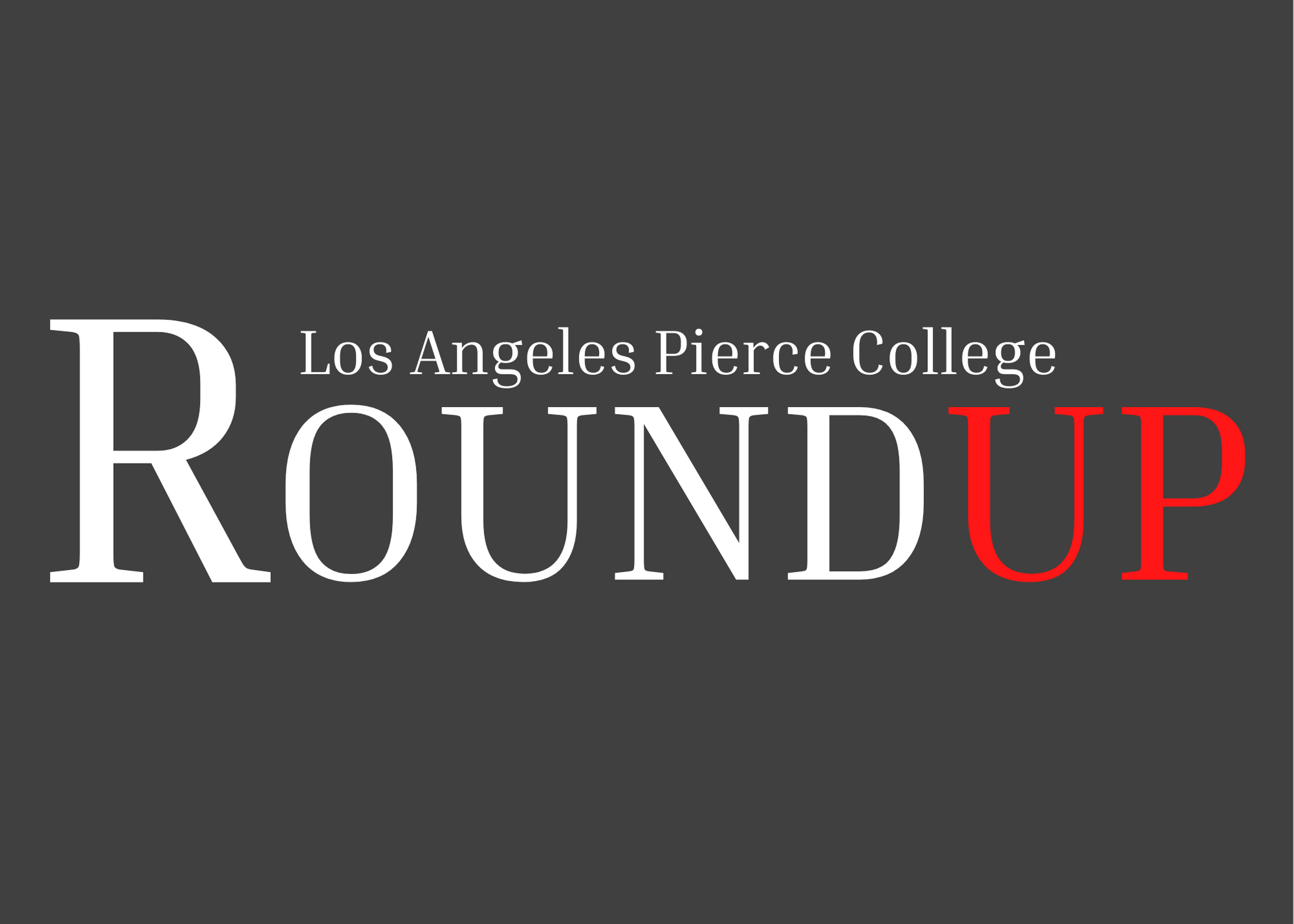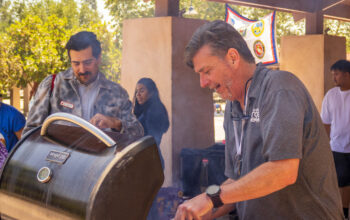Islamic Center of Conejo Valley Religious Director Imam Muhammed S. Mehtar presented at Pierce College’s 2nd Annual Multicultural Week and educated attendees on the faith of Islam.
Mehtar was born in South Africa, speaks English as a primary language, and moved to California in 1985 to get his degree.
But he said judgements made about him after the events on Sept. 11 led him to focus his study on his Islamic faith and never looked back.
“I had a very good, well-paying job and then Sept. 11 took place,” Mehtar said. “I was wearing suits in America, working and studying in America and after this date, somebody asked me the question, ‘Are you against us or for us?’ I can give my life and blood and they will never fully accept me so I figured I can go ahead and study my religion more.”
Mehtar believes that one factor is the idea that the religion of Islam contains many viewpoints that the West finds difficult to understand.
“It’s stupid that people are so scared of Muslims when their neighbor is Muslim and they still think that they can be a threat even though they are all around the world and are just as good a person and probably even better than you are for judging them,” 19-year-old California State University Northridge student Maya Zarafshan said.
Mehtar pointed out that cultures have judged one another since the beginning of time, and that it is not specific to Islam.
“There is a very important thing there,” Mehtar said. “Religion has a viewpoint. Culture has a viewpoint. The Constitution has a viewpoint. It’s the same way people make fun of America. They say that Americans throw away their elders to strange homes. This happens everywhere.”
Mehtar touched on the common criticism of Islam’s roles regarding women in society. He explained that this culture is guided by the Quran, which specifies women’s societal role.
“As far as rights are concerned, the Quran gives tremendous amounts of rights to women,” Mehtar said. “A woman must be treated when she gets married and likewise, when she is living with her parents, she doesn’t have to pay a single mine. It is the father’s responsibility. Individuals are coming in and muddling up the virtues of the religion and saying that Islam is not fair.”
Mehtar said that these differing ideals blurs the line between culture and social issues and is the cause for the stereotype regarding sexism in Islam.
“I think every culture has their own ways of doing things and one culture can’t judge another,” 19-year-old Pierce Student Adi Ward said. “I personally don’t think it is unjust, I just know that if I was personally limited in this way, I would feel an evident inequality on an everyday basis.”
Mehtar talked about the Islamic perspective on the LGBTQ community and said that the faith does not call for individuals to be stoned to death for their sexuality. However, he said that the culture is not as accepting of those who wish to marry within their gender as America is today.
“The statement is that, if they cannot marry the opposite gender, Islam asks what is keeping you from marrying,” Mehtar said. “And if the answer is to be kept private, they cannot do anything about it. The only problem they have is people running around flaunting it. It is to be kept private in a similar way that it is disrespectful for a man and woman to be displaying PDA.”
Mehtar said that the Islamic society can defend gays and lesbians if they are being hurt. He said Muslims believe that it is their god-given right to defend them. Ultimately, they cannot commend the actions that take place within the queer community, for marriage is to be kept between men and women, but they are to preserve humanity.
“Muslims do not stand for evil and violence,” Mehtar said. “There are political situations that force them to act in certain situations. Problems are nothing new. For thousands of years they have been around. You have to use what God has given you. You use your scriptures and God has given you peace and tranquility. There are political things in place that force people to turn away from the book. The same way as black people in America.”
Mehtar said that people look at him and assume that English is not his primary language and speak to him very slowly.
“I think the American government is to blame for the stereotyping of Islamic individuals for the way they look after 9/11 occurred,” Zarafshan says. “In middle school, kids called me terrorist because I’m persian and kids get that from somewhere above them.”
Mehtar said any type of phobia can be linked to a lack of understanding.
“Some of you might be very hurt at what I said today,” Mehtar said. “However, whether what I’m saying is relevant, what is relevant is that we can have this dialogue.”




